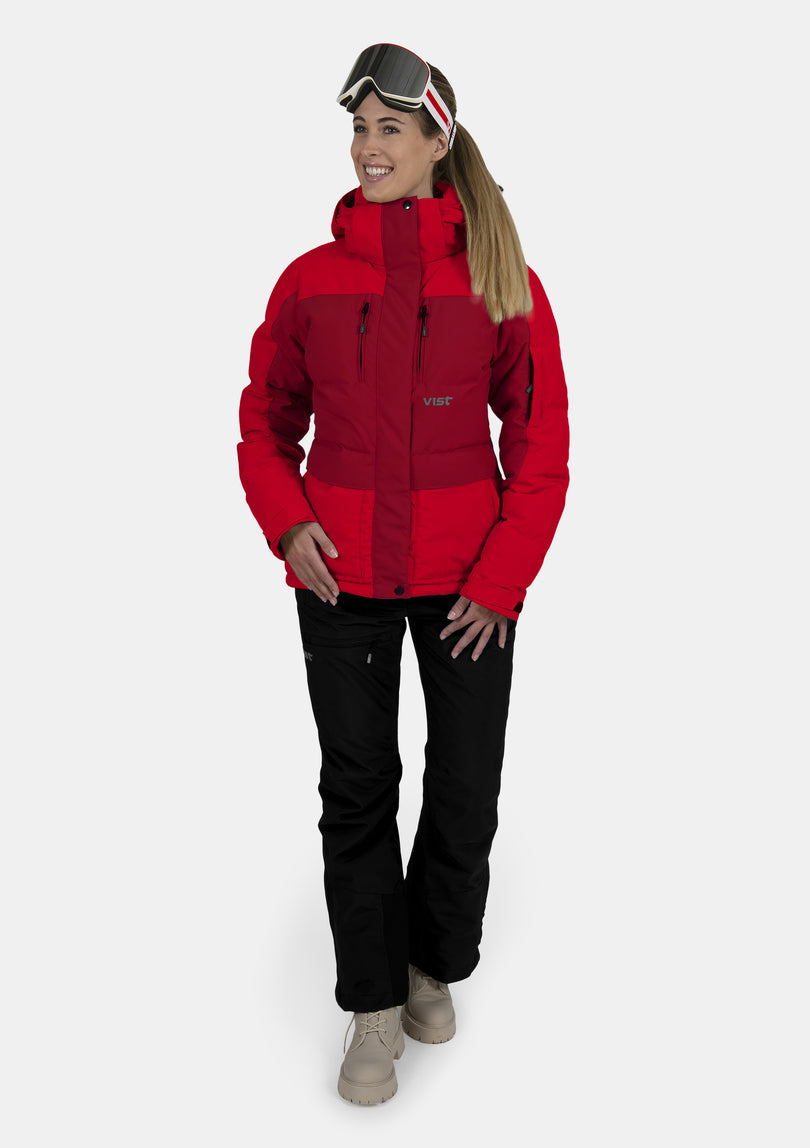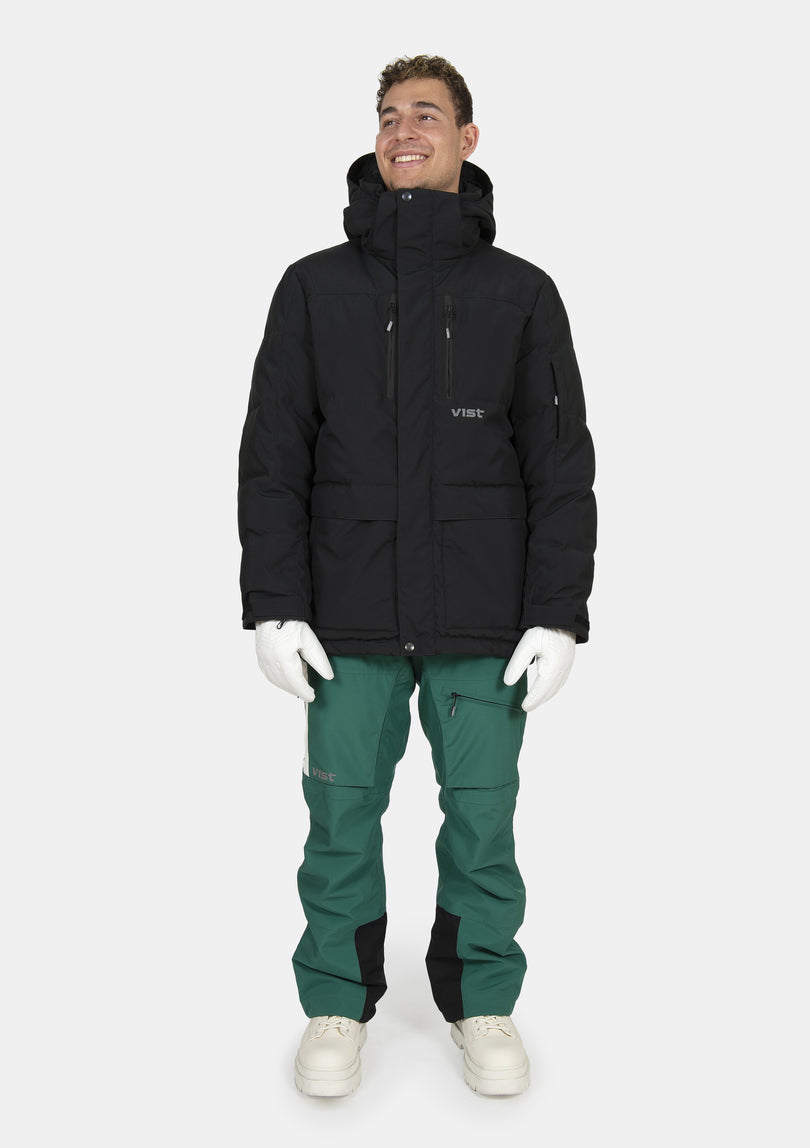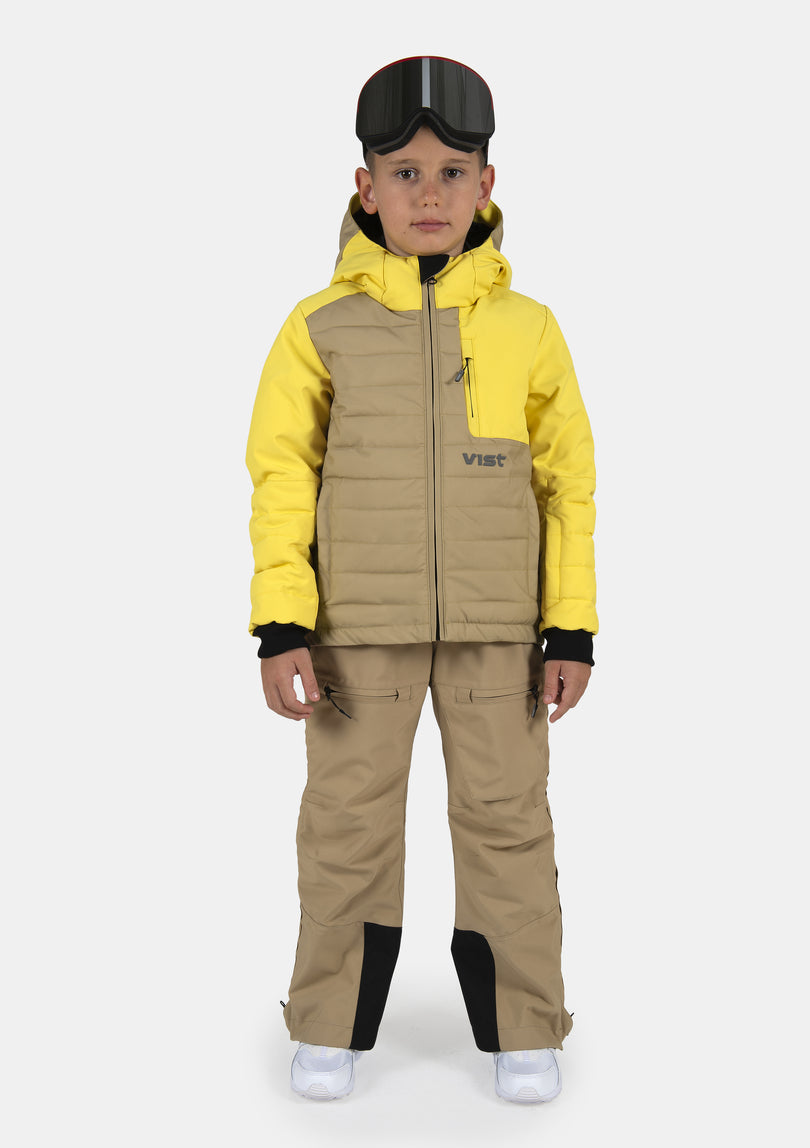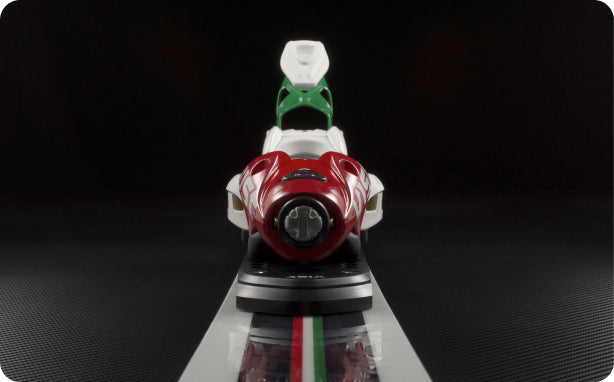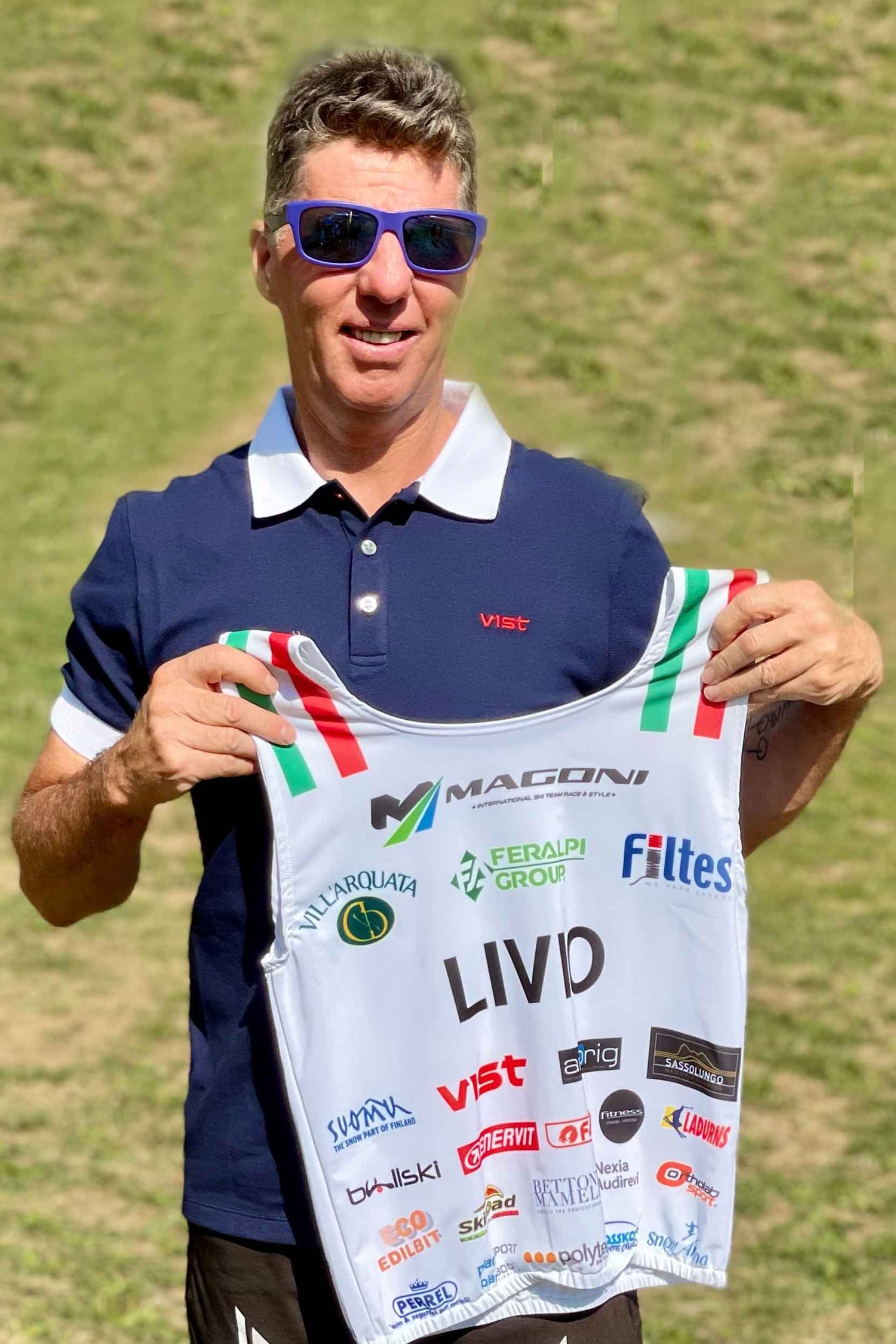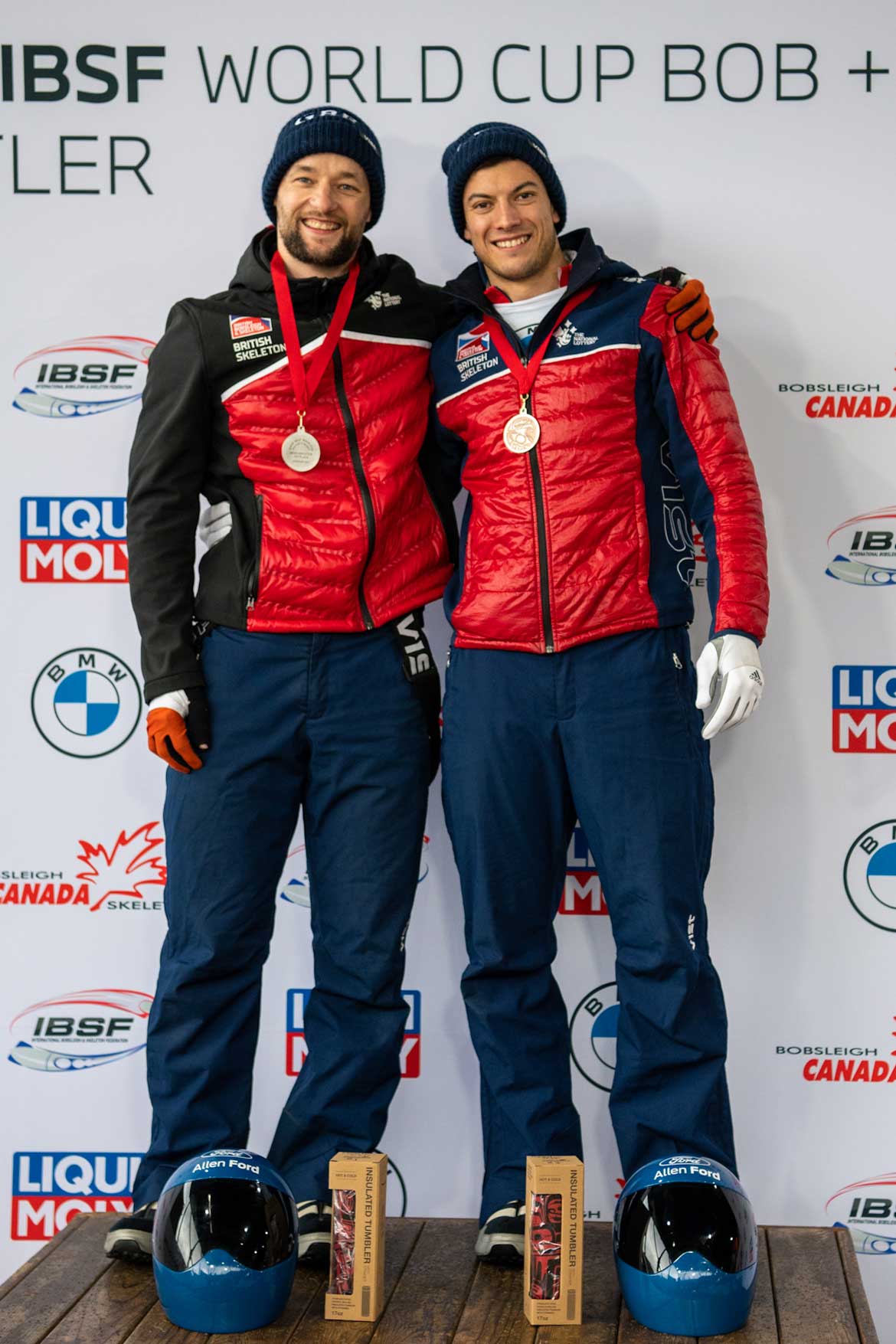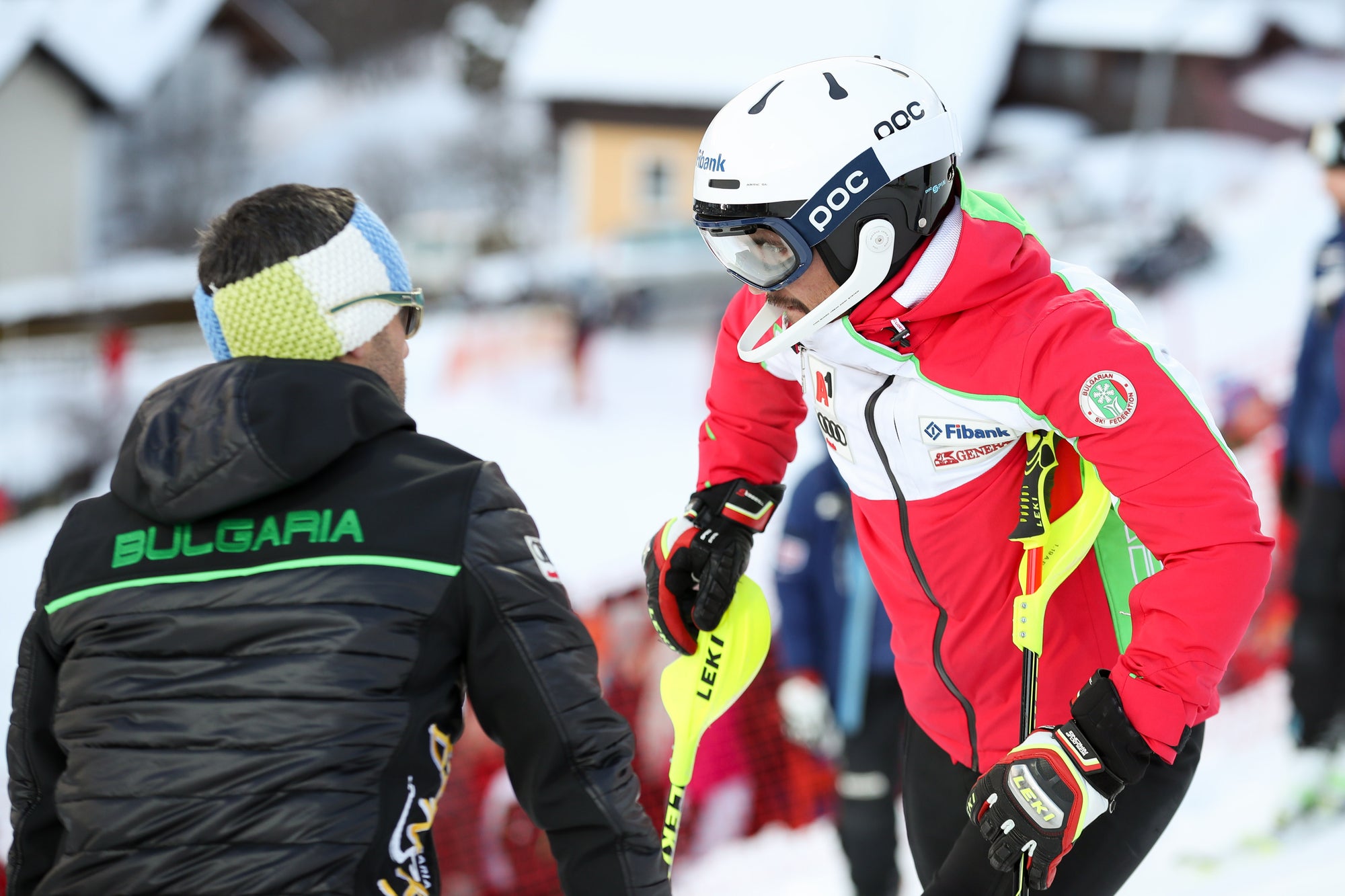Livio Magoni, originally from Selvino (Bergamo, Italy), is arguably the most successful coach in alpine skiing today. He led Olympic and Overall World Cup Champions Tina Maze (Slovenia) and Petra Vlhova (Slovakia) to victory.
Livio was born to be a true "iron" man; at the age of 59, he has already competed in 14 Ironman Triathlon races. This is no ordinary triathlon, as it consists of: a 2.4-mile (3.8 km) swim, a 112-mile (180 km) road bike ride, and a 26.2-mile (42 km) marathon run. It doesn’t end there – Livio also completed the Marathon des Sables in the Sahara Desert, the toughest footrace on Earth, which consists of a seven day 250+ km race. It is safe to say Livio’s extreme experiences reflect onto his athletes, making ‘iron people’ out of them.
Indeed, in the Alpine Skiing world, Livio is known for his stubbornness and very strict training regimes. Yes, it is a make-or-break strategy, however his unique harmonisation of hard work and rest has only seen results so far.
In addition to his coaching career with ski stars, he recently founded the Magoni Ski Academy for Future Talents with his sister, Paola Magoni, who is Olympic Slalom Champion (Sarajevo-1984), and his brother Oscar Magoni, a former Serie A football player. Livio and his siblings believe that, to achieve results, practical and quality apparel is necessary as an addition to an important coaching staff. Therefore, we were ecstatic to jump on board in contributing to Livio and his academy’s future success.
In early August, our team got an opportunity to sit down with the Livio and Paola, following a training session on the dry slope with the athletes of the Academy Selvino, Italy (Livio’s hometown). We were lucky enough to catch Livio a couple of days before his departure to Tierra del Fuego in Argentina for some training with his current conquest, Olympic Champion Katharina Liensberger of Austria.
How and when did sport come into your life? How did you get specifically into skiing?
Livio: “The sport? ...for as long as I can remember, my father and my mother pushed all our family (Paola, Sonia, Oscar and myself) into skiing - I don’t know why it was this sport specifically. We all had a career in the sport. We were skiing all the time. Oscar changed from skiing to football when he was 17 years old. He is the only one who changed sports, but all our family went skiing. We did some other sports, but skiing was a priority for our father.”
How did you start your coaching career and when did you realize that it was your calling?
Livio: “I started coaching at 21 in the Italian World Cup ski team. The federation required us to pass some mandatory tests to become a coach. At that moment the federation’s system was under change and they found that it was overpopulated. I didn’t pass the tests and I was kicked out, but I got the challenge to train an athlete from Monaco. At that moment I was a bit of a coach and a bit of an athlete. I started to immediately coach at a World Cup level because my athlete was from a small skiing nation and had the opportunity to ski World Cups and a bit of Europa Cups. And I also followed my sister Paola. This is how it all started.”
Can you describe yourself as a coach? What makes you so successful, and what makes you different from the others?
Livio: “I think my difference is that I’m a versatile coach. I’m not just a coach on the slope or just a technical coach. By this, I mean my work does not finish when I leave the slope. Indeed, I try to check athletes’ diet, their rest, their sleep quality, and their gym program (because I have a lot of experience in the gym). Even my routine of video analysis is different to others: I like to analyse everything on the computer and in enormous detail. And I also like to stay in the ski room with our ski servicemen to check they work and to understand the differences in the material before the race. I think, when I’m on the slope, I’m more ready than other coaches. Furthermore, I try to check why my athletes are not able to do some movements in the snow and integrate specific programs to improve these specific movements. I also try to check their physical and mental state in the afternoon, and hence I adjust their physical training, physiotherapy, and material accordingly. I think this is what mostly makes me different from others.”
Considering your coaching success, you are a champion by nature. Do you believe it is the same for athletes? Do you think it is genetics? Is it more culture, or is it more skill that you developed or acquired?
Livio: “I think everything. To become a World champion, an Olympic champion, or even achieving a top-ten or top-fifteen, it requires both genetics and quality. They must work because without proper work there is no victory.”
Do you believe the work is the most important of the three?
Livio: “Everything is equally important. There are a lot of athletes who work hard, I met a lot of athletes in my career, and they are really professional, but they don’t manage to push beyond their capacity. I saw some athletes who work harder than anyone else; they are full of good qualities, they win and they could win more - but when you speak with them and tell them they can do more, they just don’t understand how to.”
In terms of success, you’ve trained mainly women, is there any reason for this?
Livio: It has been already 18 years since I train Women. The reason is that after every successful story like Tina Maze, Petra Vlhova, Meta Hrovat, and now Katharina Lindsberger, I get requests from the women’s side of the sport. I have had a chance to change from the women side to the men. After 3 years with Petra, I got a request from a high-level male athlete, I was 50/50 on changing, but my idea was that I wanted to finish my goal with Petra; I wanted her to win the World Cup overall, and therefore I stayed with Petra. After I quit working with her, I was asked again to work on the women’s side.
It seems like you have flair for champions, how do you recognize a future star? What do you think about the character of a champion? What does it consist of?
Livio: “For a coach, it is very important to work with champions; it's an honour because you can learn a lot from them. I learned a lot from Tina Maze. I learned a lot from Petra. Champions are just different from others. They are ready when it’s time to be ready; whether it’s the Olympics, or the World Championships, they will be ready for those days no matter what. You see it immediately in their eyes. Sometimes, other athletes, I mean, normal athletes who even had World Cup victories, are not big champions... they get the victory, but they don’t know how or why they get a victory. This is the difference. The champions know how to win.”
When you start with the future champion, what do you start with to achieve it? Where is the start faze for you?
Livio: “When I start a new job with a new athlete, I always set one, achievable goal. We don’t speak about really big achievements, but we work on a goal-to-goal basis. We focus only on this one goal during the whole summer and preparation period. When we obtain it, we move onto another goal, and so on. I work always like this.”
Which athlete did you enjoy working with? How did you overcome difficulties with them or miscommunication?
Livio (smiling): Communication with everybody is not easy for me because my English is very bad. I learnt English at forty years old. In any case, I worked with a lot of different nations, especially Eastern European countries, and we always had really good communication. With athletes from Eastern European countries, I had much better communication, especially with the ladies, because they culturally are raised to have a strong mentality. When an athlete undertakes this kind of sport or any other individual sport like tennis, they must fully believe in the coach who works with them. I have excellent communication because I’m quite direct, I never tell an athlete that she is good when I know it’s not true. I want my athletes to know where they are exactly now in order to work toward a goal. With other athletes, like the Italians, I struggle because of their cultural differences with the Eastern Europeans. I believe in the minds of strong athletes, and I have much better relations with such athletes.
What are your expectations or goals before the season with the Austrian women’s team and with Katharina Liensberger in particular?
Livio: “This year my dream is to win a lot of slalom world cups. I would like Katharina to dominate during the season in slalom. I know she can. And I’ll continue to tell her she can. In the giant slalom, she starts with the twenty-first ranking number. She fell a bit back and her mentality is not so strong in this discipline, but I think the goal is to be in the top-fifteen-group by the end of the season. Next season is the World Championships, where anything can happen.”
Your work ethic - a lot of people know you as one who doesn’t relax so much, but how do you spend your holidays at the end of the season? How do you like to relax when you come home after hard work?
Livio: “I relax only in my home, here in Bergamo, because I have everything here. I like to go to the mountains, and to the lake. I don’t need to go anywhere, because I’m away from home almost all year round.”
Do you consider yourself successful or is there much more you can do?
Livio: “Both. I work a lot for my athletes, but also there exists a bit of competition with other coaches. I know there are a lot of coaches who are better than me, and I’m honest with myself about that. I saw them in World Cup or also in Europa Cup. Also, my friends in the Europa Cup teams, private teams or ski clubs are very good, and I try to compete with them. But my priority is my athletes. I want to put in this mentality in their head.”
In terms of the Magoni ski academy, who can join you for training? What are the selection criteria? And who do you want to join?
Livio: “The first selection is not the FIS points or how rich they are. That doesn’t matter to me. Instead, I look into the eyes of athletes, and I immediately see if they really want to do this sport since it requires a lot of sacrifice. If they choose my academy, the mentality is to reach a professional level; it requires a lot of sacrifice because we are outside of the house, and we train a lot. I like to focus more on this, than on FIS points or whatever. During the season I like the athletes who want to fight. The results do not matter. They can have thirty or forty FIS points, but I like them to try. My academy is not only about sports and results, but also about life.
I’m a coach that is motivated by the sports, not by money/profit. I don’t work for business; I work for my athletes. At this moment I have only four athletes in my academy. It is my choice, and that doesn’t mean that I don’t have other requests. My idea is to help the small federations. For now, we’ve signed athletes from Romania and Israel. And we try to do our best.”
Today your team was training on the dry slope, what is the point of this, and what technical elements can the athletes focus on?
Livio: “I use the dry slope for training in order to help teach my athletes to autonomise their movement. I call it a ‘movement of the skis’. For thirty or forty-five minutes we continuously repeat the ‘movement of the skis’ in training, and then try to replicate it in conditional training. Automatic movements is my idea of what ski racing is. Until you haven’t learned the movement automatically when free skiing, you cannot repeat it on a course with speed and timing, as you need to adapt it to different slopes. You don’t have to think about the movement, it must be automatic.”
What made you choose the skiwear brand VIST and how do you like the ski clothing?
Livio: “Two or three years ago VIST changed its owner, and we immediately got a good feeling about it. Since last year we have been wearing VIST, and I was surprised how good the quality actually was; both warm and comfortable. We have very good support from VIST. The team believes in our project and has aligns with our mentality, since VIST’s culture is to support athletes. I believe that the reason for this is that Tamara, VIST’s Manager, is originally from a small skiing nation and knows from her experience that it is not easy for a small federation in this sport. If I can help my athletes with my sponsor, I will. I think we have the same idea with VIST to help athletes of small federations because, unfortunately, this sport is very expensive.”
You have completed many Ironman races. What was the reason for you to choose this kind of competition?
Livio: “I like to do lots of sports in my life. I did the Marathon des Sables in the Sahara desert. I started to do the Ironman race for fun, and I’ve already done it fourteen times. Six or seven years ago, I completed three Ironman races in one month. I wasn’t fast, but I always finished all races. I will continue until I can, as this is what shapes my life.”
When was the last time you took part in Ironman?
Livio: “In 2018 was the last time I did Ironman because I put upon myself an obligation to win the World Cup Overall Globe with Petra Vlhova and then I built my academy. Since then, I haven’t had any time to do it again.”
Do you have any other hobbies?
Livio: “A lot. I play drums in two bands, I have a rally car and a go-kart, and I have a lot of other hobbies, but these days I really don’t have time to do them.”
What is your dream that you haven’t achieved yet?
Livio: “My dream is to see my son, Elias, at the Olympic Games. I don’t know which sport, it doesn’t really matter, but I like it as a goal and I’d like to be there with him.”
Do you want to be a watching father or a coach father?
Livio (smiling): “A coach father.”
We managed to have a talk not only with Livio but also with his sister Paola, the Olympic champion in Sarajevo-1984 in slalom, and the bronze medallist of the Ski World Championship in Bormio 1985 in slalom. Click here to read the interview with Paola.


